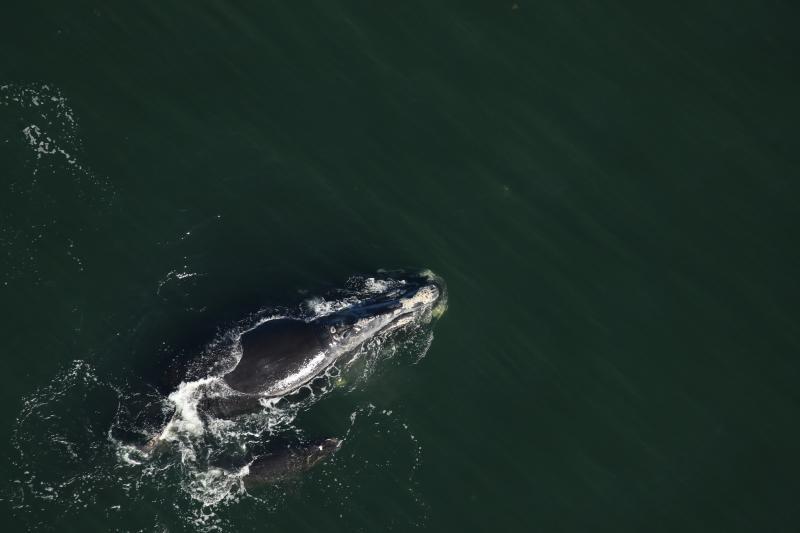Section Branding
Header Content
Options Limited For Injured Right Whale Calf
Primary Content
The injuries to a right whale calf spotted off the Georgia coast are worse than originally thought, and scientists have downgraded its chance of survival to poor.
Host Rickey Bevington spoke with GPB's Emily Jones about the injured whale and what this means for the critically endangered species.Rickey Bevington and Emily Jones discuss the whale's injuries and efforts to help it.
The calf is the fourth spotted this season. It has injuries to its lip, which could make it difficult to feed, as well as near its blowhole and along its jaw. They likely came from a boat propeller.
Veterinarian Teri Rowles with NOAA's Marine Mammal Health and Stranding Response team said because whales are so large, there are not many options for treating the calf. With a smaller animal like a seal, they might be able to bring it into a facility for intensive treatment.
For a whale, "we're limited to observation and administering some types of drugs that may help the situation," Rowles said.
If possible, they might give the whale antibiotics to prevent infection. Scientists would administer that with a special dart so they can keep their distance from the calf and its protective mother, Derecha.
Only about 400 North Atlantic Right Whales remain, and in recent years deaths have outpaced new births.
"Every calf is critically important for the future survival of the population," Rowles said.
The leading causes of death for right whales are entanglement in fishing or lobstering lines and boat strikes like the one that likely injured the new calf.
To help prevent boat strikes, there are speed restrictions in effect for vessels over 65 feet during the times of year when the whales are present. Off the Georgia coast, that is November to April.
Whale experts also stress that boats of all sizes should stay away from the whales, because getting too close can cause them stress. Boaters should keep a close eye out for whales, and back away if they spot one.



